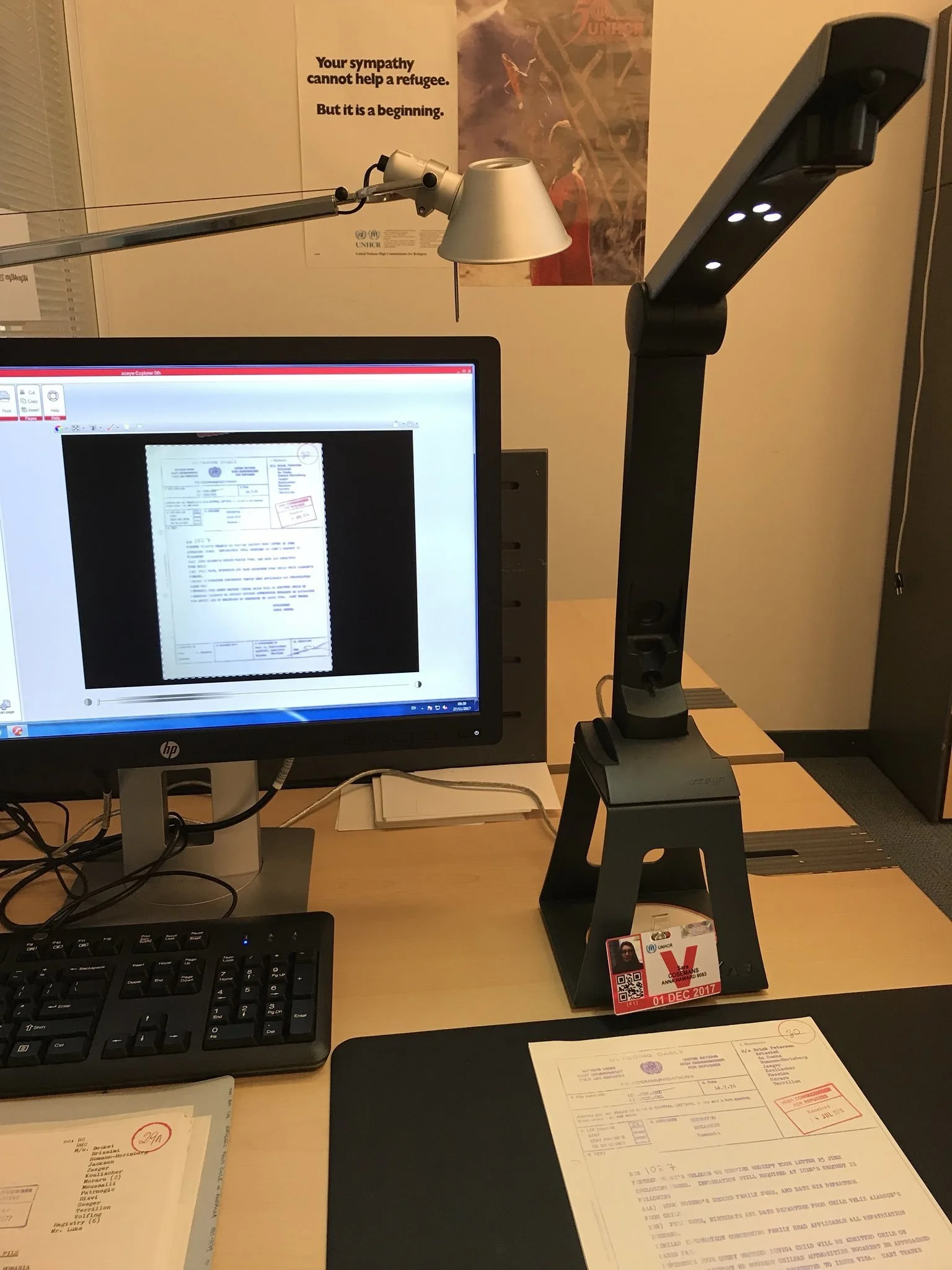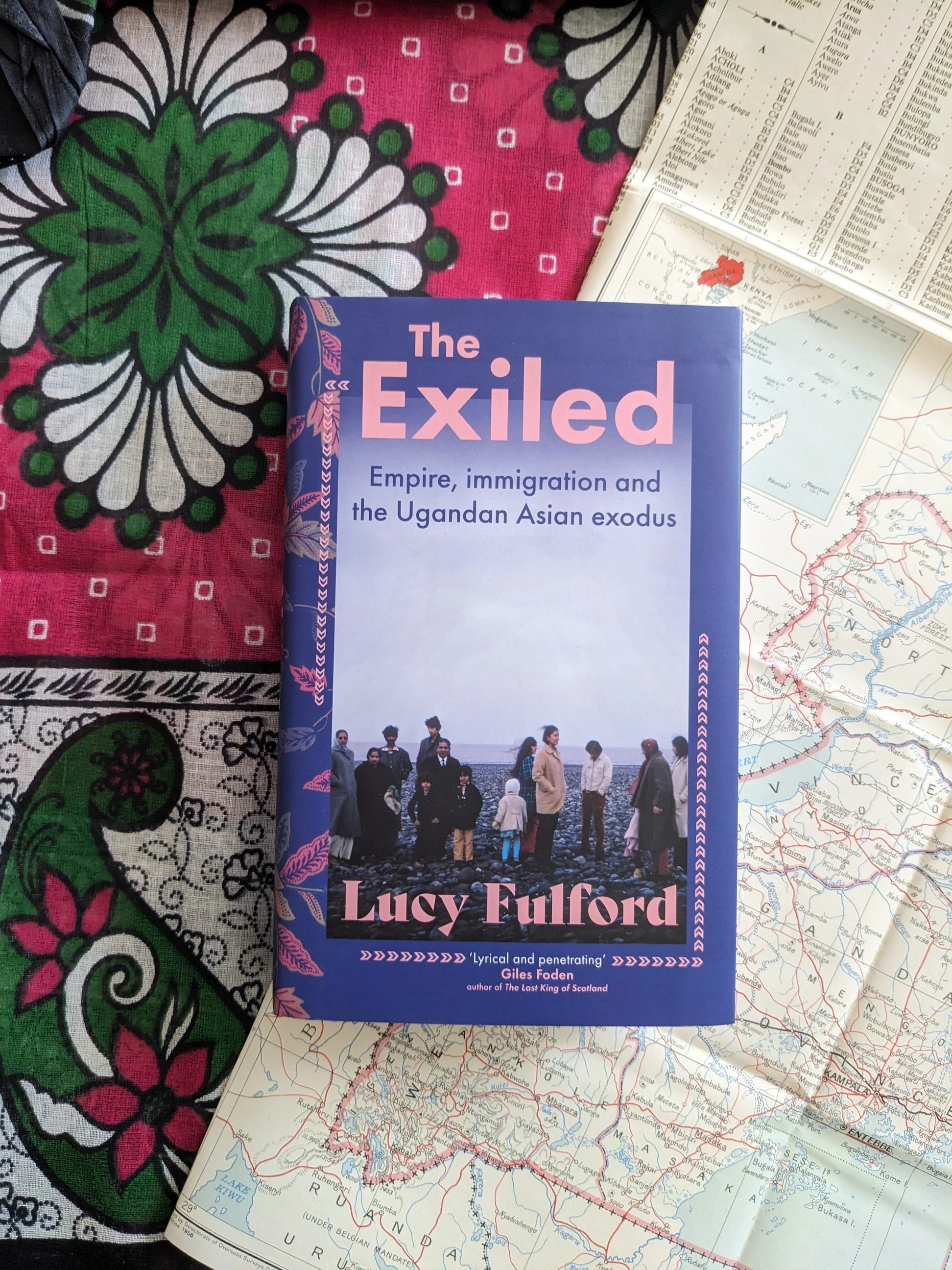Visiting the UNHCR Archives? A Beginner’s Guide
Academic researchers are increasingly recognizing the value of the archives of the United Nations High Commissioner for Refugees (UNHCR). As repositories of both analogue and digital records, these archives are valuable in understanding the origins and development of our current refugee regime. Often, these histories can inform responses to today’s humanitarian and refugee crises. In this post, we will offer some reflections, based on our combined experiences, that we hope will benefit future visitors to the UNHCR archives.
Located at UNHCR’s Headquarters in Geneva, the Records and Archives Section (RAS) constitutes a small part of the organization’s immense Division of External Relations. Despite the tremendous richness of the material – and the extensive funds UNHCR generally dedicates to the Division of External Relations – RAS is notoriously underfunded. Researchers visiting the section will soon discover that the demand for its services far outstrips supply. This means that expectations need to be managed accordingly and research trips well planned.
What can you expect to find?
Like any other archive, the UNHCR RAS preserves (primarily) original, unique material, in its original order, as it was created within each UNHCR section. The files – which occupy 10 linear kilometres of shelving – are organized in fonds. Fonds 11, the Records of the Central Registry (or the Headquarters), is the central one; other, smaller fonds represent the regional offices.
RAS also has a huge digital archive, with websites and social media accounting for 5-6 terabytes as well as a Digital Preservation System holding almost 90 terabytes. In 2020 RAS even won the Digital Preservation award for its work in this area. Some, but certainly not all, of this material is available online, through the web archive.
Both the physical and the digital materials are subject to a set of rules and restrictions, which provides for the disclosure of documents after twenty years unless issues arise around the privacy of people of interest to the UNHCR, or around strategic interests of the organization that were previously classified as confidential or strictly confidential. UNHCR’s access policy is quite liberal when compared with many other national and international institutional archives that maintain a 30-year threshold.
The approach is grounded in a belief that “in response to people who critique what’s happened in the past, one of the best responses is to open the archives.” If a document is redacted there is always a reference in the file indicating why it has been excluded, but there is growing demand for greater transparency regarding declassification decisions. Nevertheless, the fact that professional archivists rather than operations staff take decisions to declassify documents or retain them as classified is intended to serve as a guarantee for the researcher that access is not mediated by policy decisions.
How to prepare for your visit?
Since the pandemic, the reading room – the physical space assigned to researchers – constitutes a single desk for one researcher and is open only in the mornings (between 9am and 1pm). Due to limited capacity, RAS accepts only one researcher at a time, and over the past few years, individual researchers can visit only once per year. Therefore, it is necessary to give notice of your preferred visiting period in due time – we recommend six months in advance at least. The archivists also expect you to request your files at least a month in advance, so that they can review them and remove information falling under the “special restrictions” (particularly documents containing personal information about individual cases).
The access point for any file request is RAS’s online catalogue, but experience and repeated conversations with the archivists have taught us that the catalogue only contains a fraction of RAS’s actual holdings. While the catalogue is always expanding, partly thanks to earmarked grants from governments and academic collaborations, many collections remain under- or undocumented. It is not within RAS’s regular capacity or funding levels to identify material outside the catalogue to external researchers, but the archivists’ “impulse to be helpful runs deep”, according to the Head of the Research and Access Team, Heather Faulkner, especially “if the outcomes of the research project are likely to be helpful to the achievement of UNHCR’s mandate.”
RAS is also often approached with questions about getting privileged access to archives closed under UNHCR’s access to archives policy. Permission for this kind of work is rare and will most often be considered favourably only if the research is strategically useful to UNHCR. Even then, requests for access to confidential content must be cleared by the RAS archivists, the Legal Affairs Section and the Data Protection Team.
If you are not able to secure a spot in the reading room, there is a standard procedure for requesting material listed in the catalogue in digitized form. Researchers may request up to five files at a time at which point the records are put in a digitization queue, for confidentiality review, digitization and quality control. However, be aware that this service is also in high demand with few resources to back it up, so the length of the queue, and the waiting time vary according to demand.
Towards UNHCR-Academic Partnerships
Amid the apparent increase in demand and decrease in supply, with some planning, academic researchers can be part of the solution. RAS increasingly seeks collaboration with academic institutions, and in fact views researchers as important partners in reaching the objectives of the Global Compact on Refugees. RAS staff are thus becoming more proactive in seeking collaborations to get more archives documented and published. This can be in the form of internships sponsored by a university, direct inclusion of UNHCR in a consortium where RAS get earmarked funding to hire extra staff, or secondment of research assistants to the archives to work on tasks under supervision of the archivists.
Ultimately, UNHCR and academic researchers have an active role to play in understanding the present through preserving the past.




